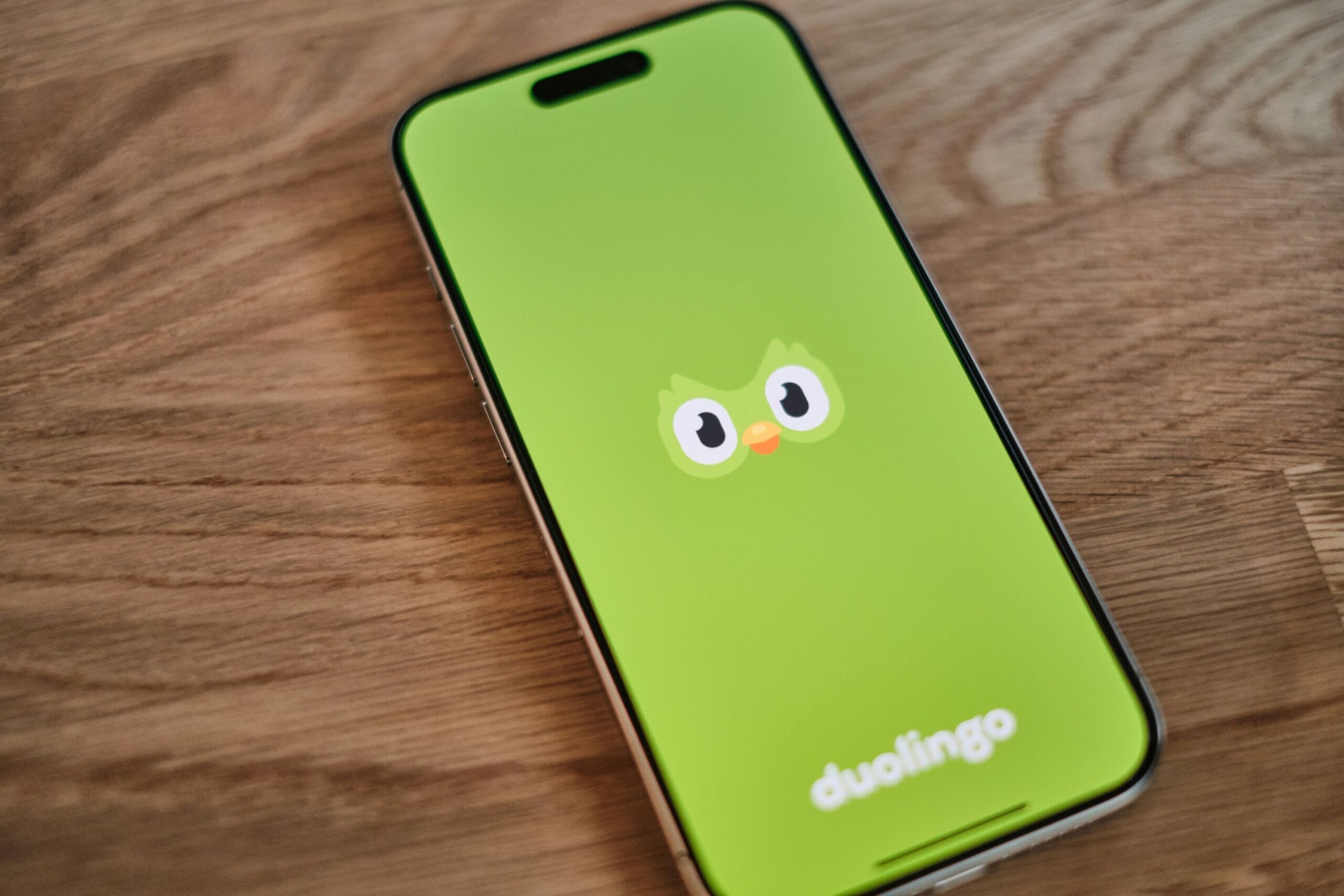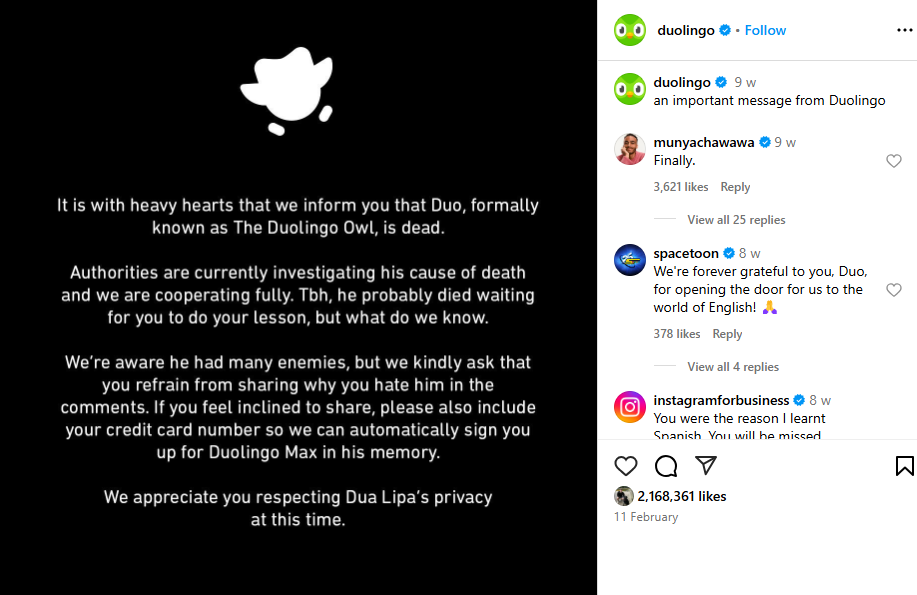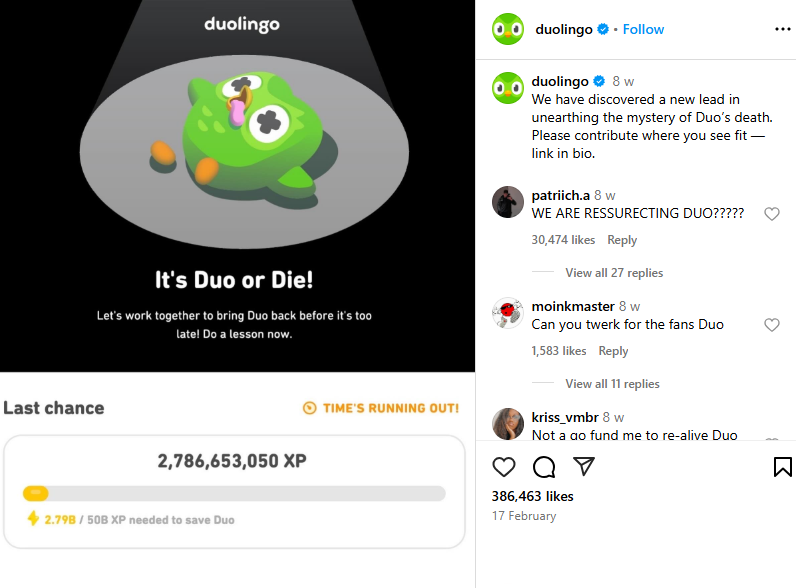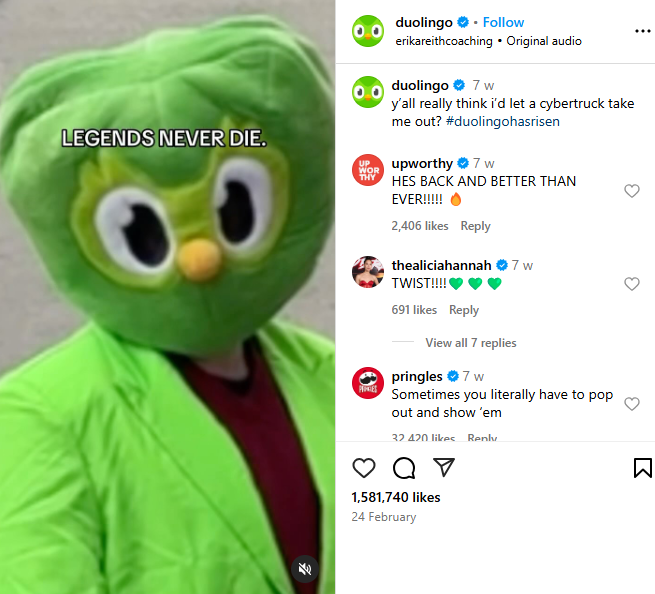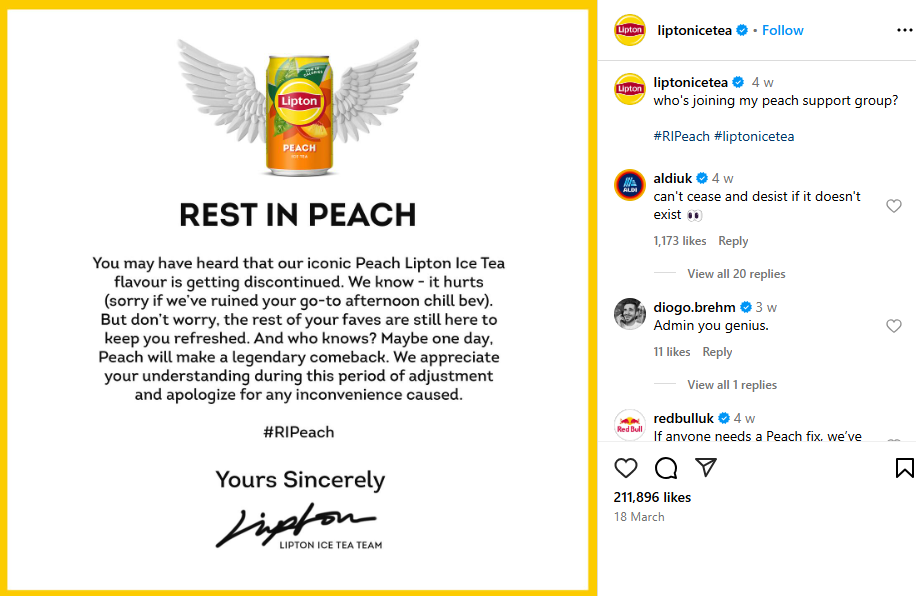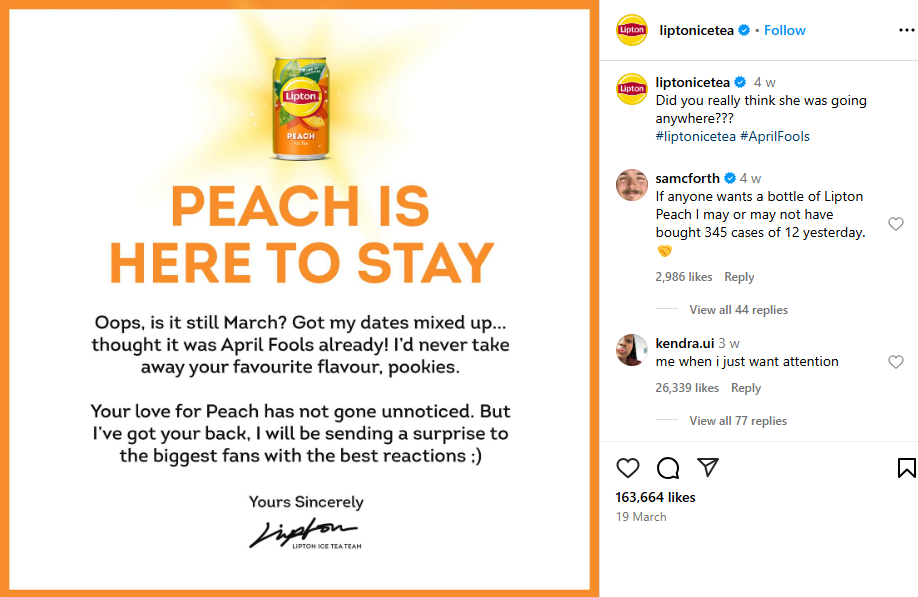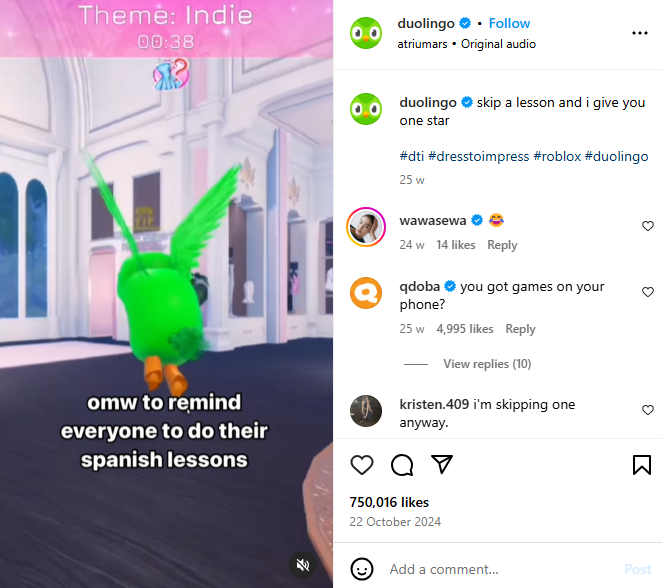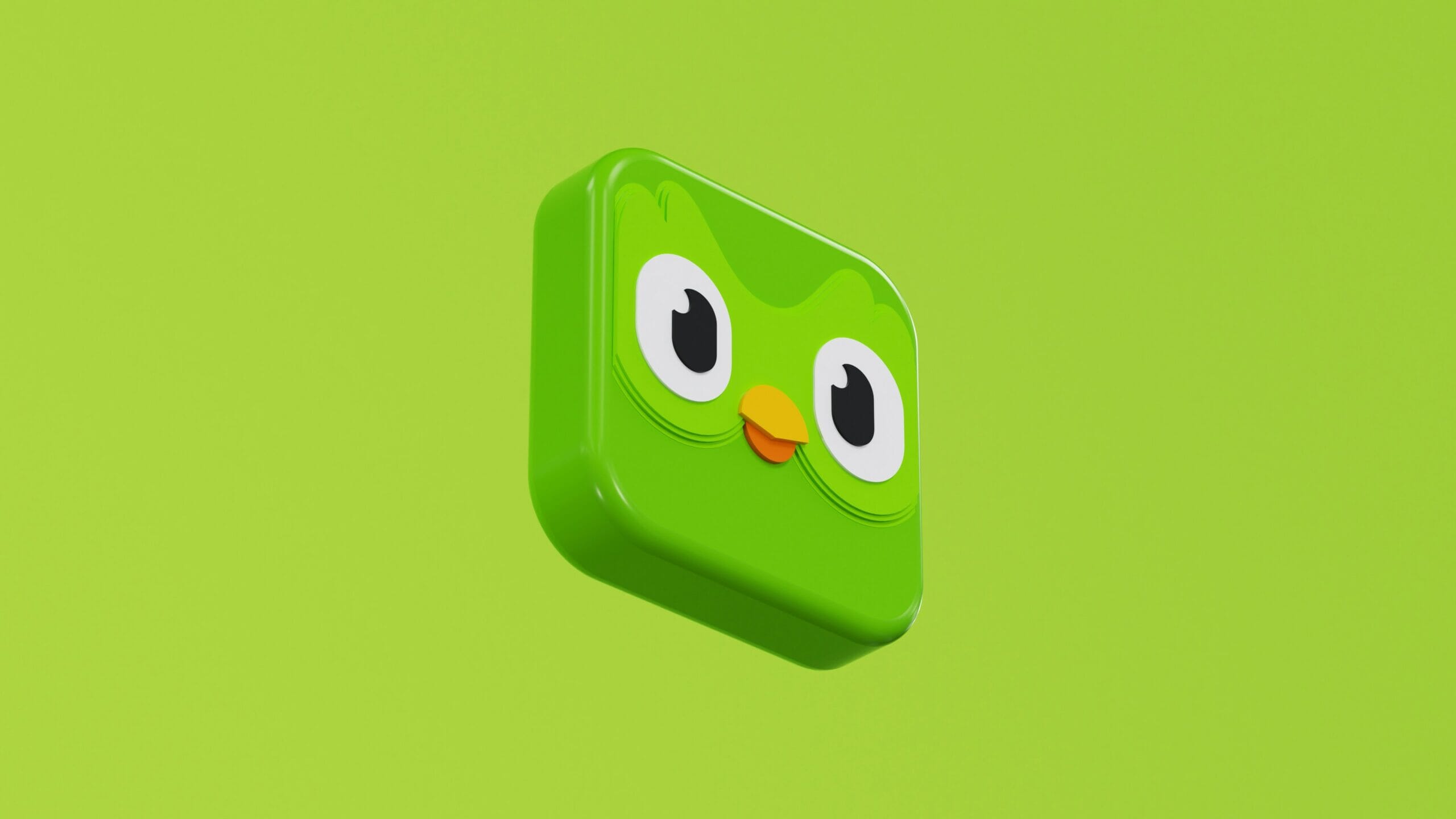Would you have ever expected to read the words “Faking my death was the test and you all passed” on a brand’s social media channel? Probably not.
Duolingo is an example of a brand that consistently gets socials right. Its online presence is spearheaded by an extremely insistent, seemingly omnipresent green owl mascot named Duo.
Duo has made a name for himself on Instagram and TikTok in recent years for his threatening lesson reminders and snarky tone of voice. Whether he’s jumping on the latest viral dance, arguing with Duolingo’s legal team or pining after pop star Dua Lipa, his content keeps the brand’s social channels relevant, entertaining, and full of personality.
So, it came as a shock to Duo’s 22.3 million followers that the beloved bird had been murdered.



